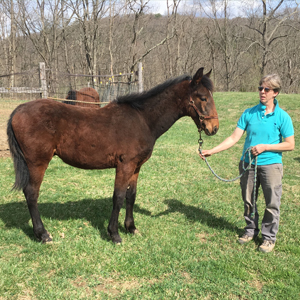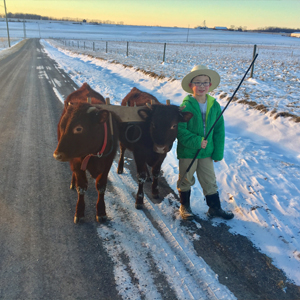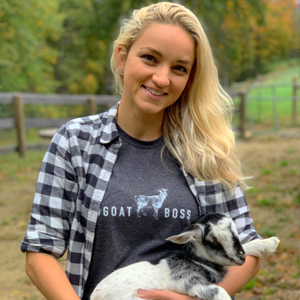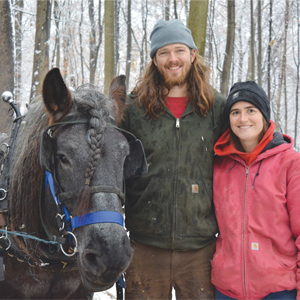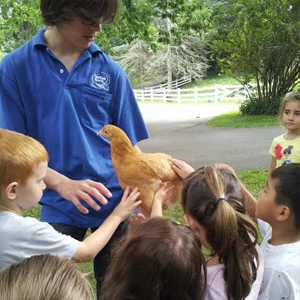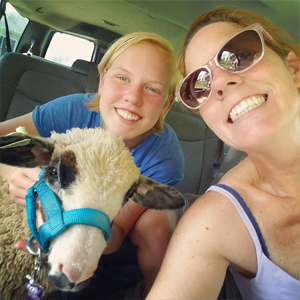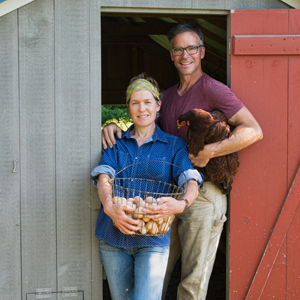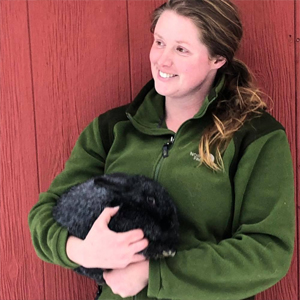2018 Microgrants Awarded
It has been incredibly gratifying to launch the microgrants program to help small scale farmers in big ways. The Livestock Conservancy is grateful to The Manton Foundation for enabling the establishment of this pilot program in the Northeastern United States, and in future years we would like to expand it around the country. We researched other small grants programs to establish forms and processes for microgrant applications. Nearly 100 Northeast farmers applied, and a team of 20 reviewers used a standardized review protocol to evaluate the applications. Our reviewers were moved by the stories of the applicants, and their excitement to improve and grow their livestock operations.
One colleague, Marie Minnich, declined to help with reviews because she did not have the time–but she really wanted to help this program. To our delight, she and her husband Stephen decided to make a matching donation of $8,000! In this microgrant cycle, we were able to provide eight $2,000 grants instead of the planned four. From Marie and Stephen’s perspective they shared “We know just how important these grants can be helping these farmers reach their goals and reaching those goals can only further help the conservation efforts for all of the heritage livestock breeds. We would love to see this type program extended nationwide.”
Dr. Pamela Hand & her husband Dr. Will Hueston are members who raise Barbados Blackbelly Sheep and earlier this year made a $5,000 gift to enable The Conservancy to fund two more grants and purchase new software to manage the growing needs of the program. Both are retired veterinary faculty members who host vet students from throughout the US on their farm for practicums. They are keenly interested in sharing with those students the importance of genetic diversity from heritage breeds and cultivating the next generation of stewards.
The winning applications were selected in January and the following projects were selected to receive grants:
- To purchase a key Cleveland Bay stallion, to add diversity into her Pennsylvania breeding herd and promote critically endangered Cleveland Bays at notable equine events – Sharon Hanna – Bay Hill Farm, PA
- To purchase an ox cart for their trained American Milking Devon Oxen, and take them to demonstrations to promote Milking Devons throughout the Northeast – brothers Dale and Josiah Freier, Ages 15 and 9, Every Season Farm, NY
- To purchase electrical fencing and expand her operation and expand her breeding flock of Arapawa goats – Michelle Nardozzi – Newbury Farms, CT
- To develop an on-farm equine reproduction laboratory and semen collection center to conserve Brabant and other rare equine breeds – Rebecca and Dehan Courtney – All the Kings Horses farm, PA
- To add multiple poultry breeds to expand educational programing – Erin O’Connell, Environmental Learning Centers Indian Rock Nature Preserve – The Learning Centers of Connecticut
- To expand pasturing capabilities and improve wool quality in their Romeldale sheep flock – Kate Hagel – Ballyhope Farm, NY
- To predator-proof enclosures and add more breeding flocks of heritage chickens and turkeys – Jim Schultz, Red Shirt Farm, MA
- To expand infrastructure of her rabbitry and bring in additional genetics for the breeding program – Ashley Pierce, Silver Fox rabbit breeder, NJ
For every application we asked for two letters of recommendation to ensure the applicant is competent and working with the breeds they say they are. The following is an excerpt in support of the Freier brothers’ project:
“These young people are fantastic ambassadors for both their heritage breed cattle and 4-H Youth Development. They are pleasant and friendly. They make friends quickly and are articulate with adults. They worked together to give an informative presentation at the county fair. Dale’s older working steer team were very impressive as he told the gathered crowd about their training and practical uses. Josiah’s calves working together in their yoke may be one of the most adorable things I have witnessed. It is a great pleasure to see them teaching other youth and fairgoers about their special interests in a positive way. They both seem as comfortable talking to their peers as they do to the Executive Director of my association or on a microphone in front of a crowd. One of the strongest traits both Dale and Josiah possess is their interest in learning. They eagerly participate in workshops and clinics. They attended a district dairy clinic and I received a report from one of the educators about their attentiveness to the program and the great questions they asked. They attended a state 4-H program at Cornell University. They participated in an animal science learning challenge in Seneca County and also took on the New York State Dairy Challenge at the New York State Fair. After visiting several stations covering topics such as meat quality, nutrition, health, safety, dairy judging, and linear appraisal, Mark said, “Thanks Ms. Susan, that was fun!” It is a dream for a 4-H Youth Development Educator to hear those words after a youth participates in a multi-faceted knowledge event.”
Respectfully submitted,
Susan M. Coyle
4-H Youth Development Educator
Cornell University Cooperative Extension
It was clear to the reviewers of this proposal that these young men are destined to do some great things with their cattle.

